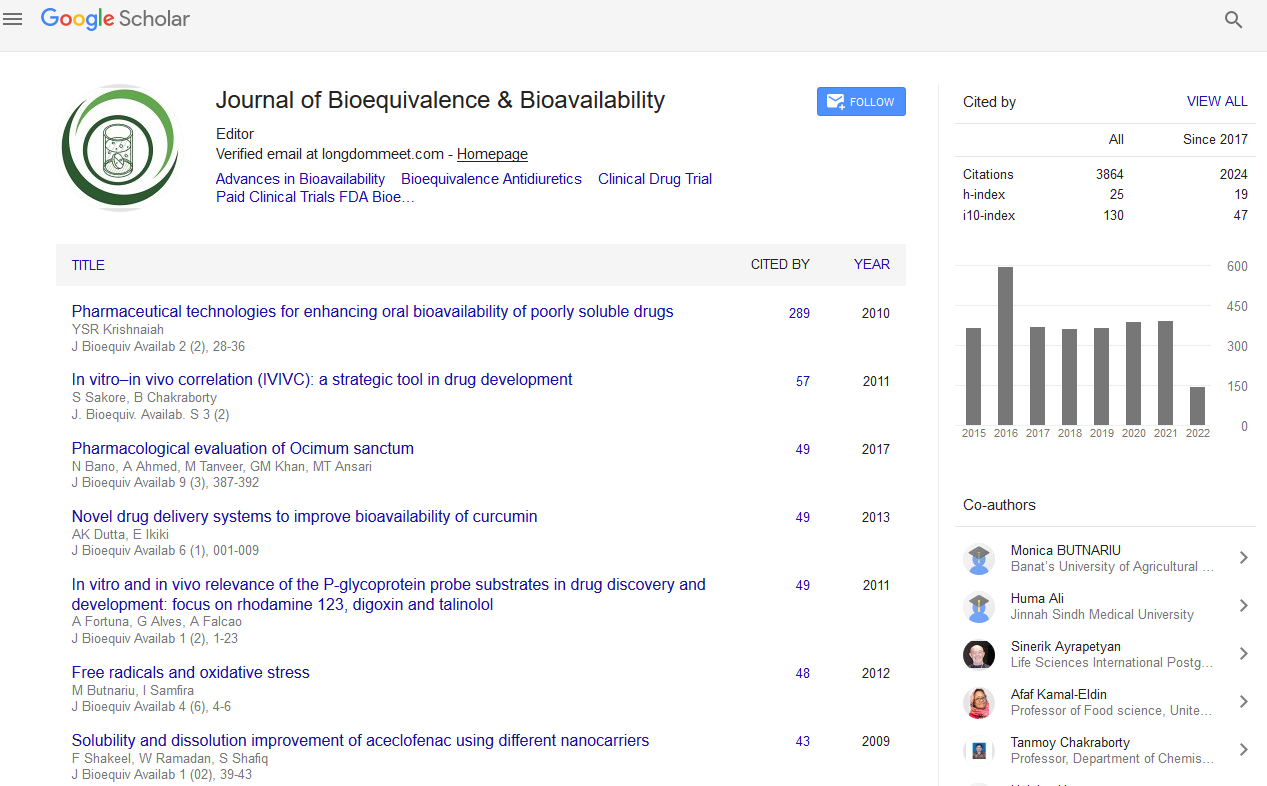PMC/PubMed Indexed Articles
Indexed In
- Academic Journals Database
- Open J Gate
- Genamics JournalSeek
- Academic Keys
- JournalTOCs
- China National Knowledge Infrastructure (CNKI)
- CiteFactor
- Scimago
- Ulrich's Periodicals Directory
- Electronic Journals Library
- RefSeek
- Hamdard University
- EBSCO A-Z
- OCLC- WorldCat
- SWB online catalog
- Virtual Library of Biology (vifabio)
- Publons
- MIAR
- University Grants Commission
- Geneva Foundation for Medical Education and Research
- Euro Pub
- Google Scholar
Useful Links
Share This Page
Journal Flyer

Open Access Journals
- Agri and Aquaculture
- Biochemistry
- Bioinformatics & Systems Biology
- Business & Management
- Chemistry
- Clinical Sciences
- Engineering
- Food & Nutrition
- General Science
- Genetics & Molecular Biology
- Immunology & Microbiology
- Medical Sciences
- Neuroscience & Psychology
- Nursing & Health Care
- Pharmaceutical Sciences
Curcumin potentiates the function of human ñ7-nicotinic acetylcholine receptors expressed in SH-EP1 cells
Joint Event: 3rd International Conference on Biopharmaceutics and Biologic Drugs & 5th International Pharmacy Conference
August 31-September 01, 2017 Philadelphia, USA
Murat Oz, Eslam El Nebrisi, Keun-Hang Susan Yang and Nadine Kabbani
Qatar University, Qatar
UAE University, UAE
Chapman University, USA
George Mason University, USA
Posters & Accepted Abstracts: J Bioequiv Availab
Abstract:
Effects of curcumin, a biologically active ingredient of turmeric, was tested on the Ca2+ transients induced by the activation of α7 subunit of the human nicotinic acetylcholine (α7 nACh) receptor expressed in SH-EP1 cells. Curcumin caused a significant potentiation of choline (1 mM)-induced Ca2+ transients with an EC50 value of 231 nM. The potentiating effect of curcumin was not observed in Ca2+ transients induced by high K+ (60 mM) containing solutions or activation of α4β2 nACh receptors. Notably, the effect of curcumin was not observed when curcumin and choline were co-applied without curcumin pre-incubation. The effect of curcumin on choline-induced Ca2+ transients was not reversed by pre-incubation with inhibitors of protein C, A, and CaM kinases. Metabolites of curcumin such as tetrahydrocurcumin, demethylcurcumin, and didemethylcurcumin also caused potentiation of choline-induced Ca2+ transients. Collectively, our results indicate that curcumin directly potentiate the function of the α7-nACh receptor expressed in SH-EP1 cells.


